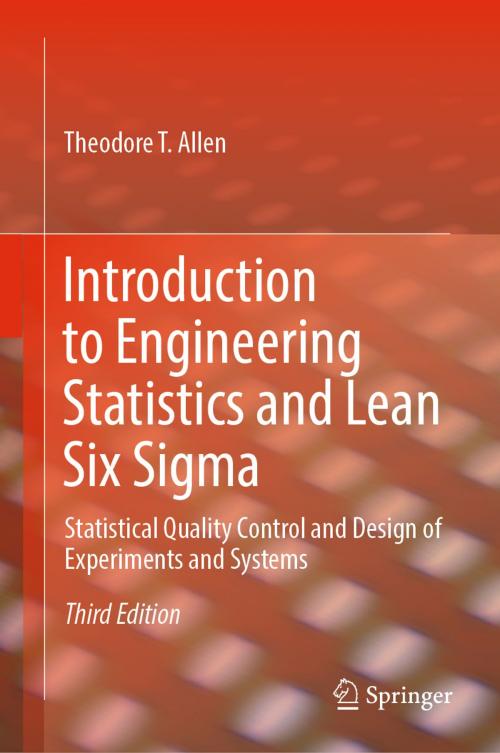Introduction to Engineering Statistics and Lean Six Sigma
Statistical Quality Control and Design of Experiments and Systems
Nonfiction, Science & Nature, Technology, Quality Control, Business & Finance, Management & Leadership, Production & Operations Management| Author: | Theodore T. Allen | ISBN: | 9781447174202 |
| Publisher: | Springer London | Publication: | December 6, 2018 |
| Imprint: | Springer | Language: | English |
| Author: | Theodore T. Allen |
| ISBN: | 9781447174202 |
| Publisher: | Springer London |
| Publication: | December 6, 2018 |
| Imprint: | Springer |
| Language: | English |
This book provides an accessible one-volume introduction to Lean Six Sigma and statistics in engineering for students and industry practitioners. Lean production has long been regarded as critical to business success in many industries. Over the last ten years, instruction in Six Sigma has been linked more and more with learning about the elements of lean production. Building on the success of the first and second editions, this book expands substantially on major topics of increasing relevance to organizations interested in Lean Six Sigma.
Each chapter includes summaries and review examples plus problems with their solutions. As well as providing detailed definitions and case studies of all Six Sigma methods, the book uniquely describes the relationship between operations research techniques and Lean Six Sigma. Further, this new edition features more introductory material on probability and inference and information about Deming's philosophy, human factors engineering, and the motivating potential score – the material is tied more directly to the Certified Quality Engineer (CQE) exam.
New sections that explore motivation and change management, which are critical subjects for achieving valuable results have also been added. The book examines in detail Design For Six Sigma (DFSS), which is critical for many organizations seeking to deliver desirable products. It covers reliability, maintenance, and product safety, to fully span the CQE body of knowledge. It also incorporates recently emerging formulations of DFSS from industry leaders and offers more introductory material on experiment design, and includes practical experiments that will help improve students’ intuition and retention.
The emphasis on lean production, combined with recent methods relating to DFSS, makes this book a practical, up-to-date resource for advanced students, educators and practitioners.
This book provides an accessible one-volume introduction to Lean Six Sigma and statistics in engineering for students and industry practitioners. Lean production has long been regarded as critical to business success in many industries. Over the last ten years, instruction in Six Sigma has been linked more and more with learning about the elements of lean production. Building on the success of the first and second editions, this book expands substantially on major topics of increasing relevance to organizations interested in Lean Six Sigma.
Each chapter includes summaries and review examples plus problems with their solutions. As well as providing detailed definitions and case studies of all Six Sigma methods, the book uniquely describes the relationship between operations research techniques and Lean Six Sigma. Further, this new edition features more introductory material on probability and inference and information about Deming's philosophy, human factors engineering, and the motivating potential score – the material is tied more directly to the Certified Quality Engineer (CQE) exam.
New sections that explore motivation and change management, which are critical subjects for achieving valuable results have also been added. The book examines in detail Design For Six Sigma (DFSS), which is critical for many organizations seeking to deliver desirable products. It covers reliability, maintenance, and product safety, to fully span the CQE body of knowledge. It also incorporates recently emerging formulations of DFSS from industry leaders and offers more introductory material on experiment design, and includes practical experiments that will help improve students’ intuition and retention.
The emphasis on lean production, combined with recent methods relating to DFSS, makes this book a practical, up-to-date resource for advanced students, educators and practitioners.















